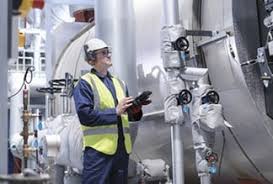Training Course on Refinery Revamp and Debottlenecking Studies
Training Course on Refinery Revamp & Debottlenecking Studies to equip engineers, managers, and technical professionals with cutting-edge tools and methodologies to identify constraints, improve throughput, and ensure regulatory compliance through successful refinery revamp and debottlenecking strategies.

Course Overview
Training Course on Refinery Revamp & Debottlenecking Studies
Introduction
Refinery revamp and debottlenecking studies are essential in ensuring the continuous improvement of refinery performance, sustainability, and profitability. As global energy demand shifts, refineries are under increasing pressure to optimize existing assets, reduce emissions, and improve energy efficiency without large-scale capital investments. Training Course on Refinery Revamp & Debottlenecking Studies to equip engineers, managers, and technical professionals with cutting-edge tools and methodologies to identify constraints, improve throughput, and ensure regulatory compliance through successful refinery revamp and debottlenecking strategies.
This comprehensive course blends practical case studies, simulation techniques, and real-time operational data analysis to empower professionals in making data-driven decisions. With the increasing importance of ESG (Environmental, Social, and Governance) standards, digitization, and smart refinery concepts, this course integrates trending technologies and sustainable approaches. Participants will gain insights into project planning, feasibility analysis, risk management, and economic evaluation, all tailored to refining operations.
Course Objectives
- Understand refinery revamp fundamentals and lifecycle management.
- Identify bottlenecks using real-time process simulation and data analytics.
- Apply energy integration techniques for enhanced energy efficiency.
- Learn advanced catalyst selection and optimization strategies.
- Enhance operational reliability using predictive maintenance tools.
- Assess environmental impact and carbon footprint reduction methods.
- Apply digital transformation and Industry 4.0 solutions in refinery upgrades.
- Conduct techno-economic feasibility analysis for revamp projects.
- Develop modular design strategies for scalable revamp implementation.
- Integrate sustainability practices into revamp planning.
- Master project risk assessment and regulatory compliance.
- Improve product yield and throughput without major CAPEX.
- Study global best practices and benchmarking in refinery modernization.
Target Audience
- Process Engineers
- Project Managers
- Refinery Operation Supervisors
- Maintenance Engineers
- Environmental Engineers
- Capital Project Planners
- Control & Instrumentation Engineers
- Energy Managers
Course Duration: 5 days
Course Modules
Module 1: Introduction to Refinery Revamp Strategies
- Understanding the drivers for refinery revamp
- Revamp vs. greenfield project: cost-benefit analysis
- Strategic planning and stakeholder alignment
- Timeline and turnaround considerations
- Industry success stories and lessons learned
- Case Study: Revamp of an FCC Unit in a Middle East Refinery
Module 2: Debottlenecking Techniques and Tools
- Identification of process constraints
- Flow modeling and hydraulic analysis
- Advanced process simulation tools
- Data collection and bottleneck analysis
- Integration with plant operations
- Case Study: Debottlenecking a CDU/VDU Train for Increased Throughput
Module 3: Process Simulation and Optimization
- Aspen HYSYS and UniSim applications
- Dynamic vs. steady-state modeling
- Reactor optimization strategies
- Heat exchanger network optimization
- Utility and energy balance modeling
- Case Study: Simulation-Based Optimization in a Hydrocracker Unit
Module 4: Energy Integration & Efficiency Improvement
- Pinch analysis and energy mapping
- Waste heat recovery technologies
- Heat exchanger retrofit design
- Improving steam and power balance
- KPIs for monitoring energy improvements
- Case Study: Steam Integration in a Complex Refinery System
Module 5: Environmental Compliance & ESG Integration
- Emission reduction technologies
- Carbon capture and utilization
- Flare minimization and VOC control
- ESG criteria in revamp planning
- Environmental risk assessment methods
- Case Study: ESG-Focused Revamp in a European Refinery
Module 6: Digital Technologies in Refinery Upgrades
- Role of AI and ML in operations
- IoT-enabled monitoring and diagnostics
- Digital twins for performance prediction
- Smart sensors and data lakes
- Cybersecurity in refinery digitization
- Case Study: Implementing Digital Twins in a Refinery Revamp
Module 7: Project Feasibility and Economic Analysis
- CAPEX vs. OPEX optimization
- Payback period and IRR calculation
- Life cycle cost analysis
- Techno-commercial risk assessment
- Funding and financial modeling
- Case Study: Financial Feasibility of a Modular Revamp Project
Module 8: Case-Driven Integrated Revamp Planning
- Scenario planning with multi-disciplinary teams
- Stakeholder mapping and communication
- Integrated risk and safety analysis
- Change management in revamp projects
- Execution planning and progress tracking
- Case Study: Full-Scope Revamp Planning in a Latin American Refinery
Training Methodology
- Instructor-led live sessions with industry experts
- Real-world case studies and simulations
- Interactive group workshops and problem-solving
- Hands-on software demos and tools training
- Assessment and feedback through quizzes and project reviews
Register as a group from 3 participants for a Discount
Send us an email: [email protected] or call +254724527104
Certification
Upon successful completion of this training, participants will be issued with a globally- recognized certificate.
Tailor-Made Course
We also offer tailor-made courses based on your needs.
Key Notes
a. The participant must be conversant with English.
b. Upon completion of training the participant will be issued with an Authorized Training Certificate
c. Course duration is flexible and the contents can be modified to fit any number of days.
d. The course fee includes facilitation training materials, 2 coffee breaks, buffet lunch and A Certificate upon successful completion of Training.
e. One-year post-training support Consultation and Coaching provided after the course.
f. Payment should be done at least a week before commence of the training, to DATASTAT CONSULTANCY LTD account, as indicated in the invoice so as to enable us prepare better for you.